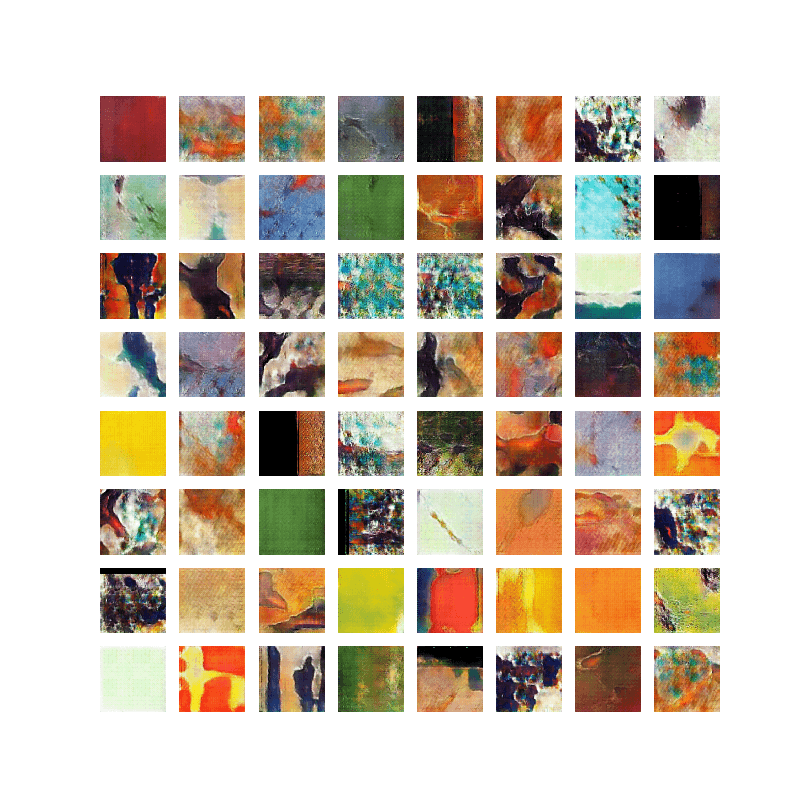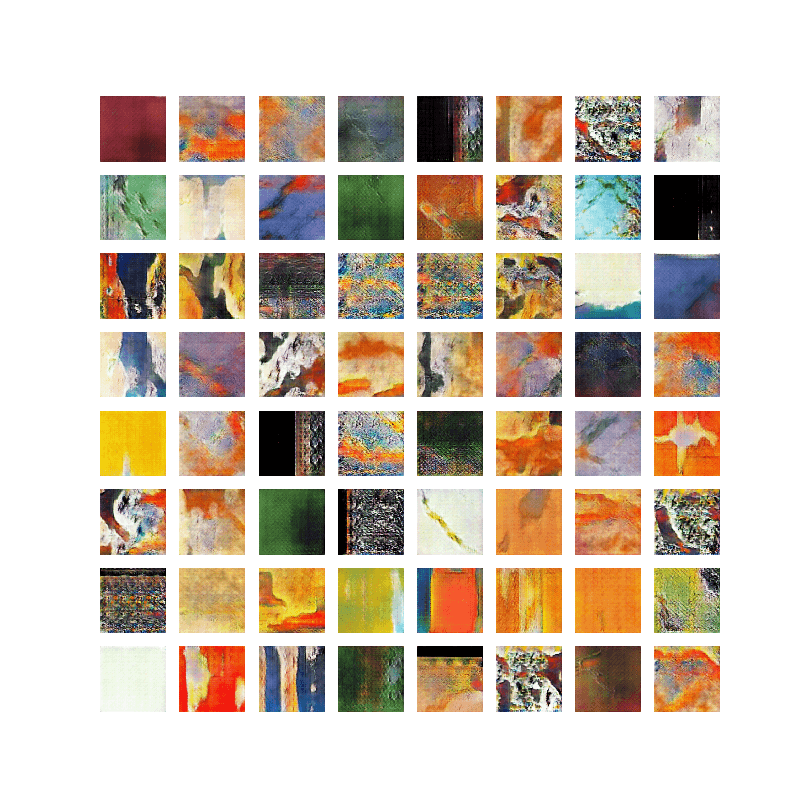
abstract-DCGAN
abstract-DCGAN is a deep learning model that uses a Deep Convolutional Generative Adversarial Network (DCGAN) architecture to generate abstract artwork. The model was trained on a large dataset of abstract artworks from the likes of Jackson Pollock, Mark Rothko, and Franz Kline.

The DCGAN model is a type of neural network that is specifically designed for generating images. It consists of two networks: a generator and a discriminator. The generator network takes a random noise vector as input and outputs an image, while the discriminator network tries to distinguish between real and generated images. The two networks are trained together in a process called adversarial training, where the generator tries to create fake data that looks as real as possible, while the discriminator tries to distinguish between real and fake data. The two networks are trained together in a loop. Over time, the generator learns to create more realistic images, while the discriminator improves at distinguishing between the real and fake (generated) images. Eventually, the generator is capable of creating the abstract artwork seen here.
DCGAN has become a popular choice for generating figurative artwork, such as realistic portraits, animals, and landscapes. However, my motive with the Abstract-DCGAN project was to work with art that breaks away from figuratism and explores the realm of abstraction. Abstraction in art involves creating non-representational images that explore the use of color, shape, and texture. In this spirit, my motive with abstract-DCGAN was to explore non-traditional methods of artistic expression—namely machine learning. Today, with the widespread accessibility to powerful artificial intelligence (Chat-GPT wrote this description), our traditional mediums and means of artwork will continue to be challenged and expanded.
This work was a part of my senior project for Stanford CS. I was supervised by Professor Ron Fedkiw.